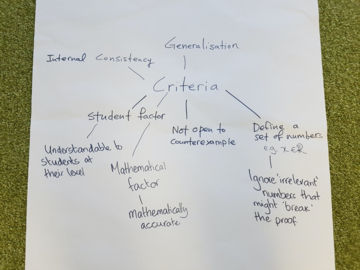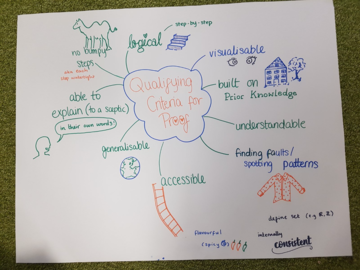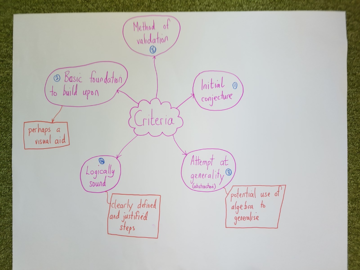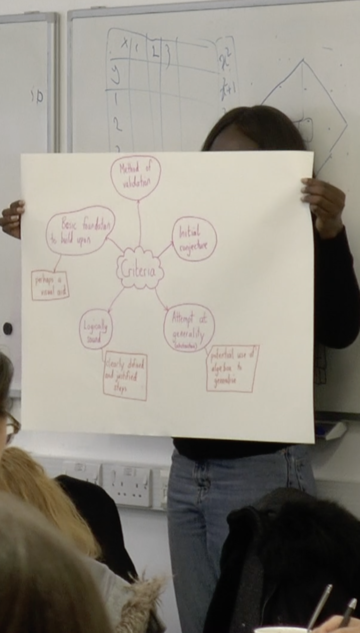What is the meaning of argumentation in the context of a particular discipline?
What is the meaning of argumentation in the context of a particular discipline?
Rationale
There is little doubt about the importance of students of all levels of education (including university students) engaging productively in the process of argumentation in different subject areas and disciplines. Yet as we explained in More about the meaning of Argumentation, there is not a widely accepted definition of the notion of argumentation in the literature and the notion of argumentation may even be a subject of debate within particular disciplines. In mathematics education, for example, there is currently lack of an operationally functional conceptualization of “argumentation” and the associated notion of “proving” that can be used to practically inform students’ and teachers’ argumentation-related engagement in the classroom at both the school and university levels (see, e.g., Balacheff, 2002; Mariotti, Durand-Guerrier, & Stylianides, 2018; Reid, 2005; Stylianides, 2007). If teachers and students do not have a practical tool to help them decide whether an argument meets certain disciplinary standards or what purposes argumentation can serve in their work, it is unrealistic for us to expect that argumentation will have the place we envision for it in students’ classroom activity.
In this section we explore the important question of “What is the meaning of argumentation in the context of a particular discipline?” in the particular context of mathematics and science. Although the meanings of argumentation we will explore will likely not be directly applicable to other disciplines, there will be some common features and also similar considerations that instructors in other disciplines can consider.
Pedagogical Strategies
Establishing relevance of argumentation for own area of work
In this video clip, Professor Sibel Erduran inks the main concepts of argumentation to participants’ own area of work. The context is teaching of in-service science teachers who are participating in a part-time Master’s programme in Teaching and Learning. She questions the participants about how they view the role of argumentation from their own professional standpoint. She specifically links argumentation to science teaching and learning. The pedagogical strategies focus on questioning to establish relevance of argumentation in science teaching and learning. The participants provide examples of their own experiences and ideas which help with meaning making of argumentation in a way that is relevant and useful for the participants.
What criteria might an argument need to satisfy to qualify as a proof in a secondary mathematics classroom?
In mathematics education, there is currently lack of an operationally functional conceptualization of “argumentation” and the associated notion of “proof” (the pinnacle of argumentation in mathematics) that can be used to practically inform students’ and teachers’ argumentation-related engagement in the classroom at both the school and university levels. So it is important for teachers and their students to develop a set of criteria that arguments needs to satisfy in order to be accepted in their classroom community as valid. These criteria need to be both honest to the meaning of proof in the discipline and accessible to students.
In this section we see examples of posters created by the students in Professor Gabriel Stylianides’ classroom in response to the question: What criteria might an argument need to satisfy to qualify as a proof in a secondary mathematics classroom?

|

|

|
The posters are not identical, but they clearly have some common features rooted in the meaning of argumentation in the discipline of mathematics.



